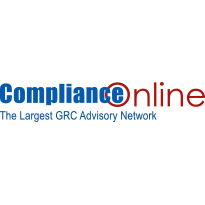Raw Material Requirements (Health Canada/USP/EP) in a cGMP Environment - Issues and Solutions
Denmark, Copenhagen
Raw material requirements in a cGMP environment are often overlooked as a company develops new products. Depending on the product being developed, e.g., tablets and capsules vs. biotechnology products, as few as fifteen to twenty or as many as sixty raw materials need to be sourced before the process can be moved from initiation through completion.
This highly interactive two day seminar on raw material requirements in a cGMP environment will:
- Consider Health Canada, FDA, USP and EP requirements.
- Examine a variety of the issues surrounding raw materials to include what materials should be tested and to what extent during Phase 1, 2, 3 and commercial production.
- Cover testing requirements during each phase and what may be optional (regulatory risk) until the product moves to its next phase.
- Determine what options exist - even within a Phase 2 or Phase 3 testing framework.
- Discuss compendial vs. non-compendial testing and how to respond when no method is available.
- Discuss how a 90 percent vs. a 90.0 percent minimum purity analysis can delay initiation of testing.
- Explore the number of lots required for testing before reduced testing might occur and why some companies don't accept this route.
- Review the use of individual samples vs. composite samples for testing.
- Explore ASQ testing to include how to choose attributes and sample size.
The objective of this two day seminar is to explore raw materials and their requirements – issues and solutions. It will also explore how water impacts the final product since water is the single largest raw material that is used within most processes. Another objective is to assure that your organization is maintaining itself within a cGMP compliance framework. Case studies to include Warning Letters will be discussed to illustrate regulatory raw material issues.
Objectives :
- Understand how various types of raw materials may impact the user.
- Learn of the impact of raw materials in the timely production of a product.
- Determine the single most used raw material in large molecule production and what it means to the user.
- Find the sources of analyses assistance for raw materials.
- Appreciate the requirements for Phase 1 through commercial manufacturing.
- Initiation of additional testing -- when?
- Examination of regulatory risk (ICH Q9).
- Why use compendial testing in lieu non-compendial testing.
- Testing requirements -- when is enough?
- The impact of ASQ on sample size and attribute testing.
Compliance online location :
- ComplianceOnline.com, MetricStream Inc.
- 2479 East Bayshore Road
- Suite 200
- Palo Alto, CA 94303
Registration contact :
- Name : Mohammad Irshad
- Email: Mohammad.Irshad@ComplianceOnline.Com
- Phone: +1 650-332-0381
- Fax: +1 650-565-8542
Day 1 : 8h30 AM - 4h30 PM
- 08.30 AM - 09.00 AM: Registration
- 09.00 AM: Session Start
- The various raw materials and the user impact
- Impact of raw materials in the timely production of a product
- The impact of the single most used raw material in large molecule production and its impact upon the user
- The regulatory requirements for Phase 1 through commercial manufacturing
- The use of additional testing – does one only review the C of A
Day 1 : 8h30 AM - 4h30 PM
- The use of compendial testing in lieu of non-compendial testing – pros and cons
- Regulatory risk (ICH Q9) with raw materials
- Testing requirements – how to sample
- Testing requirements – how to test
- The impact of ASQ on sample size and attribute testing
- Case Studies – Time to apply the previous two days
- Warning Letter examples
Résumé
Barry A. Friedman, PhD, is a Consultant in the Biotechnology, Regulatory Compliance and Aseptic Processing Arena. Dr. Friedman possesses over 30 years of industrial managerial experience in various aspects of biopharmaceuticals and medical devices to include regulatory compliance, expert witness testimony, GLP/GMP, quality control, auditing, sterility assurance, microbiological/analytical validations and fermentation technology.
Prior to becoming an independent consultant, Dr. Friedman was associated with Cambrex Bio Sciences, a contract manufacturer of GMP bulk biopharmaceuticals located in Baltimore, Maryland. As the Director of Quality Control, he managed a multi-shift Department of thirty one individuals involved in client management, the receipt and testing of raw materials, environmental monitoring and microbiology, analytical chemistry and QC compliance for the production of Phase 1, 2, 3 and commercial products manufactured from bacteria, yeast and mammalian cells. In this capacity, Dr Friedman enjoyed many client and regulatory interactions, both domestic and international.
Prior to 2000, Dr. Friedman was the Laboratory Director for Chesapeake Biological Laboratories, a contract Aseptic Fill n’ Finish manufacturer located in Baltimore, Maryland. In addition to the professional history listed above, other associations have included W.R. Grace, Sigma Chemical Co., Sherwood Medical, Becton Dickinson, American Cyanamid and Union Carbide.
Dr. Friedman received his B.S. degree in Microbiology from Ohio State University, his M.S. from Michigan State University in Microbial Genetics, and his PhD from Ohio State University in Microbiology.

